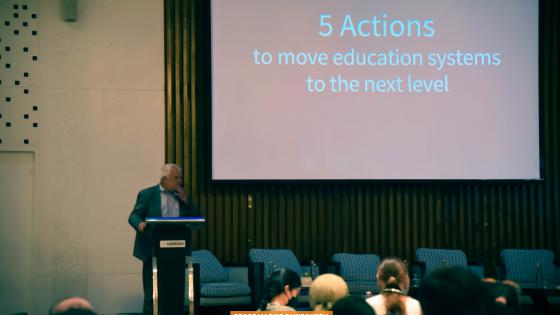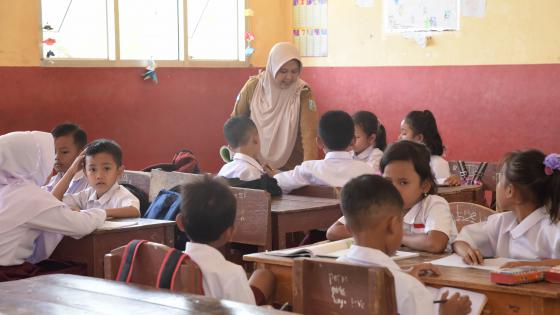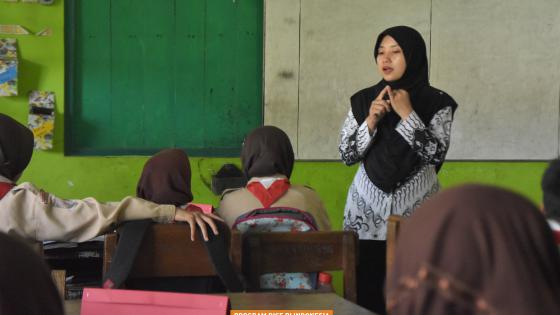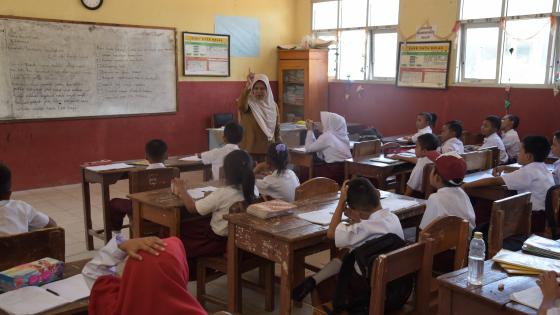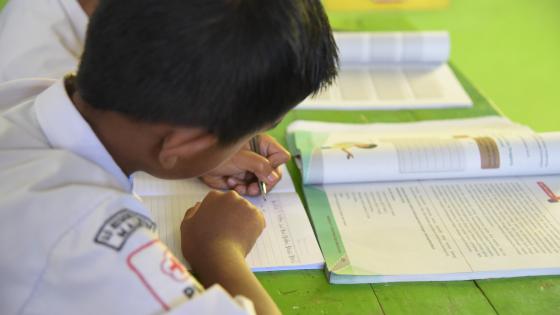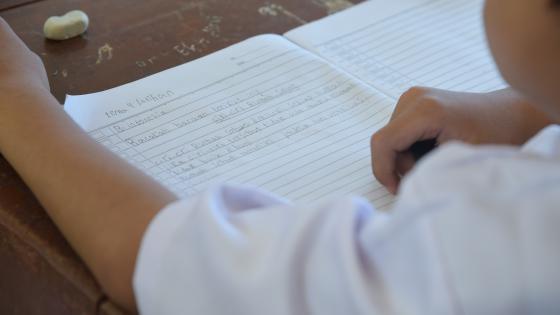Photo illustration: Mukti Mulyana
.
This article was originally posted on The Conversation Indonesia.
.
The learning from home policy during the COVID-19 pandemic has been in place since March 2020.
Our study at The SMERU Research Institute from April to June 2020, which involved 290 primary school teachers across 25 provinces, found that the school principal's role was still lacking in assisting teachers who had difficulty implementing distance learning during the pandemic.
Principal's role in supporting learning from home is still lacking
Our survey showed that many teachers, especially those outside Java, are ill-equipped in preparing materials for online learning and lack funding support to teach students in remote areas.
Amidst various limitations, the school principal should have experimented with innovations to support teachers in creating effective distance learning.
Our survey revealed at least three shortcomings in the principal's role in learning during the pandemic.
Firstly, financial support from the school to lessen the burdens of distance learning remains minimal, especially during the first days of school closure.
Less than half of our teacher respondents received additional funds from their school to implement learning-from-home. The lack of funding was mostly suffered by public school teachers outside Java Island and those in villages.
Even for teachers who received additional funding, the schools only gave an average of 72,000 rupiah ($5) a month for each teacher.
Meanwhile, the average funds needed for a teacher were 150,000 rupiah a month for creating lesson plans, pay for an internet package, learning application subscription, and additional transportation fees for visitations to students' houses.
In the end, the majority of teachers in our survey still needed to spend their own money during remote learning.

Secondly, there was still a lack of training from school principals to support teachers' capacity in facilitating online learning.
At the beginning of school closure, only 24% of the 290 teachers we surveyed received training relevant to learning technology from the school. Teachers who actually received such training mostly came from private schools and schools in big cities.
From a survey of distance learning over the past three months, the Indonesian Teacher Association (IGI) found that 60% of teachers in Indonesia have poor skills in using learning technology.
Consequently, teachers spent more time learning technical things, such as selecting the right platform or digital application for teaching instead of focusing on the lesson materials.

Thirdly, only a few principals monitored or ensured that distance learning went well. The principals rarely measured teachers’ performance in performing distance learning.
For example, only 26% of respondents said their principals routinely monitored them during the learning-from-home period. Approximately 42% of teachers even got observed only once a week. In addition, only 37% of teachers had their lesson materials checked by their principals.
When, in fact, monitoring is crucial so that principals can listen and assist parents and teachers in dealing with difficulties they encounter while implementing distance learning.
Principals can use the School Operational Assistance (BOS) funds
Through a new regulation, the Ministry of Education and Culture has given 100% flexibility to school principals in allocating the School Operational Assistance (BOS) funds—of 900,000 rupiah per child per year—during the COVID-19 pandemic.
The new regulation, implemented since the beginning of the 2020/2021 school year, allows principals to use the BOS funds to support teachers in implementing distance learning.
Principals can also use the funds to administer more training, improve the monitoring systems for teacher performance, and subsidise internet package for teachers and students.
This assistance will make it easier for teachers to design online classes, collect learning resources, use applications to support teaching, and participate in online training and webinars held by various institutions.
Students also benefit from being able to access the learning materials online from home.
Especially for villages where the internet network is unreliable, BOS funds can also be given to teachers who have to visit their students’ homes in remote areas.
Our study, for example, found that some teachers had to travel up to 30 kilometres to students' homes for face-to-face meetings of no more than an hour.
Principal's leadership determines a teachers' success
Distance learning indeed puts teachers as actors with the greatest responsibility. Still, the whole learning process can't completely rest on them.
Research from Stanford University in the United States observed 1,800 schools across seven countries, including Brazil and India, and found that almost half of the difference between high-performance schools and the lower ones lies in the quality and policies made by the school principal.
The Ministry of Education and other institutions have released a special guideline for effective learning during the learning-from-home period, including how to determine learning outcomes and recommendations of learning sources accessible on the internet.
With all the things mentioned above, the principals should be able to take responsibility for ensuring effective online learning. They are also obliged to help teachers find solutions to the problems they face and lessen their burden during the implementation of learning from home.
When teachers face a dilemma in choosing a strategy, the school principal can discuss the matter with the teachers to help to gather information.
The principal needs to be more active in discussing with teachers in creating lesson plans, mapping the curriculum for learning from home, and designing a suitable grading system for distance learning.
Apart from solely relying on the principal's initiative, the local education agency can also supervise the principal's role.
For example, they can provide training that equips principals with knowledge of policies and innovations that must be implemented during the pandemic.


